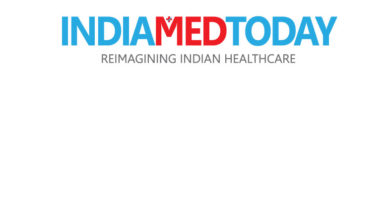Indraprastha Apollo Hospitals
-
Indraprastha Apollo Hospitals hosts awareness prog on mgmt, treatment of rectal cancer
The session had discussions on radiology, pathology, medical and radiation oncology and surgery The Department of Gastrointestinal Surgery & GI…
Read More » -
Woman undergoes partial knee replacement surgery at Indraprastha Apollo Hospitals
Mobile partial knee replacement surgery, a high-tech procedure, is an alternative to traditional joint replacement surgeries A 58-year-old woman suffering…
Read More » -
Indraprastha Apollo Hospitals ties up with Datri
Launches revamped, state-of-the-art ‘Centre for Bone Marrow Transplant and Cellular Therapy’ Indraprastha Apollo Hospitals in association with Datri has launched…
Read More » -
Indraprastha Apollo Hospitals launches book on COVID-19
80 healthcare workers have contributed towards the book Apollo Hospital has unveiled a comprehensive textbook on COVID-19, written and edited…
Read More »





